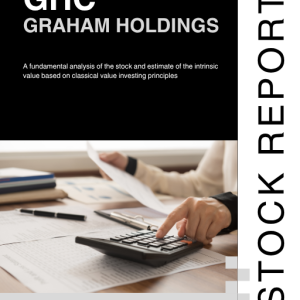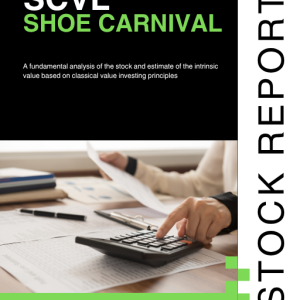
The market will test you. Over and over again. No matter how experienced you are as an investor, no matter how rational you think you are, moments of panic and uncertainty will creep in. The question is not whether downturns will happen, but whether you will react rationally or succumb to emotion when they do.
It’s easy to feel confident when stock prices are rising. Your portfolio looks great, your net worth climbs, and the financial media sings a chorus of optimism. But what happens when the music stops? When stocks plummet, red fills your screen, and every headline screams “crash”?
Fear sets in. The urge to do something—anything—to stop the bleeding becomes overwhelming. And yet, the worst decisions in investing are made in the heat of the moment. Studies in behavioral finance show that investors frequently sell at the bottom out of panic, locking in losses, only to watch the market recover soon after.
Market Declines Are Inevitable and Not a Reason to Panic
If you want to succeed as a value investor, you must master one skill above all else: controlling your emotions when markets decline. Because if you can’t, no amount of financial acumen will save you. The best investors understand that the market does not move in a straight line. It goes through cycles—sometimes brutally painful ones—but those who stay the course and remain level-headed come out ahead in the long run.
This guide will show you how to stay calm, think clearly, and seize opportunities when others are losing their heads. Managing emotions when investing is one of the most critical skills every investor must develop.
Understand the Psychology Behind Fear and Greed
When the market drops, it triggers primal emotions hardwired into our brains. Fear tells you to sell before things get worse. Greed tells you to buy when things are euphoric. These instincts are designed for survival in the wild, not for investing.
Legendary value investor Benjamin Graham put it best: “In the short run, the market is a voting machine, but in the long run, it is a weighing machine.” The short-term chaos is driven by emotional reactions, but over time, fundamentals determine real value.
Short-term fear causes wild price swings, but fundamentals always win over time. The key is recognizing when you’re reacting emotionally rather than rationally. Handling stock market declines requires the ability to separate emotions from logic.
Loss aversion makes the pain of losses feel twice as strong as the pleasure of gains. Recency bias convinces you that recent market drops will last forever. Herd mentality tempts you to follow the crowd, even when the crowd is wrong. These biases are the reason so many investors sell when they should be buying and buy when they should be selling.
Step back. Pour yourself a cup of coffee. Look at the bigger picture. Understand that stock market panic selling is almost always a mistake. Market crashes have happened before and will happen again. Each time, the market has recovered.
Adopt the Mindset of a Business Owner
Imagine you own a small business. If sales decline for a few months, do you immediately try to sell your entire business at a discount? Of course not. You assess whether the fundamentals are intact and whether conditions will improve. If they do, you stay the course and wait for better days.
Yet, many investors don’t treat their stock investments the same way. Investing psychology in bear markets dictates that you must think long-term rather than react impulsively.
If you own a great company that’s generating strong cash flows, has a durable competitive advantage, and is run by competent management, why would a temporary drop in stock price make you panic? If anything, it might be an opportunity to buy more.
The true investor sees downturns as what they are—temporary mispricings that create opportunities.
Stick to Your Investment Process and Avoid Knee-Jerk Reactions
Investing is a long game. The best way to avoid making emotional decisions is to have a clear process in place before volatility strikes. If you don’t have a plan, fear will make decisions for you.
A margin of safety ensures that even if prices drop, your investment remains fundamentally sound. Predefined buy and sell rules help you avoid emotional decisions. Checking prices daily increases the risk of making irrational choices. If you are a long-term investor, obsessively watching the market every day will only create unnecessary stress.
The market does not care about your emotions. But if you let them take over, the market will punish you for it. Managing fear in the stock market is about discipline and process.
Ignore Financial Media and Herd Mentality
Financial media thrives on sensationalism. Fear sells. Panic drives clicks. Journalists and TV pundits aren’t incentivized to keep you calm; they are incentivized to keep you engaged.
In a market downturn, you’ll see headlines like: “The Worst Market Crash Since 2008?” or “Investors Panic as Stocks Plummet.” The problem? By the time these articles are published, it’s already too late to act.
The crowd—driven by short-term sentiment—almost always overreacts. As a value investor, your job is to focus on reality, not hysteria. Look at earnings, cash flows, and balance sheets—not Twitter trends.
Train Yourself to See Declines as Buying Opportunities
Warren Buffett’s mantra—“Be fearful when others are greedy, and greedy when others are fearful”—is easier said than done. When markets fall, it doesn’t feel like an opportunity. It feels like disaster.
But the best bargains are found when panic is at its peak. If you have cash reserves, you can take advantage of these moments to buy great businesses at a discount. How value investors handle market crashes determines long-term success.
Review past market crashes and see how they eventually recovered. Make a watchlist of high-quality stocks you want to own at the right price. Reframe declines as a “sale” rather than a “crash.” The best investments are often made during times of crisis.
Stay Liquid and Be Ready to Deploy Capital
The worst feeling in a market decline? Watching incredible opportunities appear but having no cash to invest. That’s why liquidity matters.
Keep cash reserves for market declines. Avoid over-leveraging—margin can force you to sell at the worst times. Be patient. A bear market can last months or even years, so don’t rush all-in too soon.
Having cash ready gives you options while others are forced to sell at fire-sale prices. Best ways to avoid panic selling stocks include maintaining financial flexibility.
Learn from the Greats
Let’s take a look at how some of the world’s greatest investors handled downturns.
Warren Buffett in 2008 invested billions into Goldman Sachs while others panicked. John Templeton in 1939 bought 104 stocks trading below $1 per share, many of which went on to multiply in value. Charlie Munger once said, “The big money is not in the buying and selling, but in the waiting.”
Each of these investors embraced declines as opportunities rather than disasters.
Remember Your Long-Term Goals
At the end of the day, why are you investing? If your goal is to compound wealth over decades, short-term fluctuations shouldn’t distract you. A well-constructed portfolio, bought with a margin of safety, can withstand volatility and reward patient investors.
Market declines are not problems to be solved. They are opportunities to be seized.
Stay Rational, Stay Opportunistic
Market declines will always happen. Your emotions will always try to trick you. The best investors use downturns to their advantage.
If you can keep a level head while others panic, you won’t just survive bear markets—you’ll profit from them.
Featured products

Shailesh Kumar, MBA is the founder of Astute Investor’s Calculus, where he shares high-conviction small-cap value ideas, stock reports, and investing strategies. He is also a strategy and operations consultant focused on measurable business outcomes
His work has been featured in the New York Times and profiled on Wikipedia. He previously ran Value Stock Guide, one of the earliest value investing platforms online.
Subscribe to the Inner Circle to access premium stock reports and strategy insights.
Featured in:











